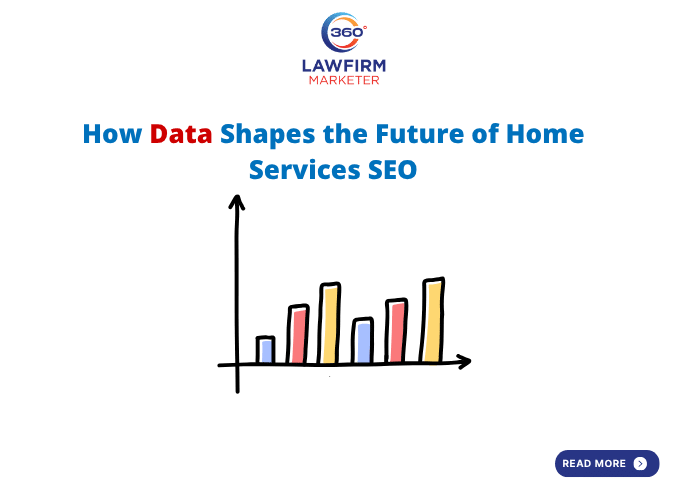
The home services industry plumbing, HVAC, electrical, roofing has always relied on trust and local visibility. But in today’s digital-first world, Home Services SEO is no longer just about keywords and backlinks. It’s about data analytics, consumer behavior insights, and even social media signals. Marketing professionals who embrace data-driven strategies are setting new benchmarks for visibility, conversions, and ROI.
Recent updates confirm this shift. Google’s June 2025 Algorithm Update prioritized E‑E‑A‑T (Experience, Expertise, Authoritativeness, Trustworthiness) and hyper-local relevance, rewarding businesses with accurate profiles, strong reviews, and helpful content. Meanwhile, AI-powered search experiences like Google’s Search Generative Experience (SGE) are reshaping how homeowners find services favoring detailed, trustworthy answers over thin content.
And the numbers speak volumes:
- 78% of local searches on mobile lead to a purchase within 24 hours.
- 80% of home service businesses use social platforms like Facebook and Instagram to engage customers.
- CPC for competitive home service keywords often exceeds $40, making organic SEO and smart targeting essential.
So, how exactly is data shaping the future of SEO for home services? Let’s explore.
1. Why Data Is the New SEO Engine
Gone are the days of guesswork. Today’s marketing professionals rely on analytics to understand what homeowners search for, when they search, and why. Tools like Google Analytics, Search Console, and CRM platforms provide insights into:
- Keyword performance: Which phrases convert best (e.g., “emergency plumber near me” vs. “water heater repair cost”).
- User behavior: Bounce rates, time on page, and conversion paths.
- Seasonal trends: HVAC searches spike in summer; furnace repair dominates winter.
By analyzing these patterns, businesses can predict demand and optimize content accordingly. For example, if data shows a surge in “AC repair cost” queries in May, creating a detailed blog or video on that topic can capture high-intent traffic.
2. Consumer Behavior Insights: The SEO Game-Changer
Homeowners today don’t just search, they research. They compare, read reviews, and expect instant answers. Data reveals:
- 86% of consumers read reviews before hiring a local service.
- Gen Z and Millennials use long-tail, conversational queries like “Why won’t my AC cool and how much will it cost to fix?” instead of generic terms.
- Voice searches for urgent needs (e.g., “I need an emergency plumber right now”) have grown by 300%+ in five years.
For SEO, this means optimizing for problem-specific queries, FAQs, and voice-friendly content. Adding structured data and conversational language can help your site rank for these evolving search patterns.
3. Social Media Marketing (SMM) for Home Services: More Than Likes
Social media isn’t just for engagement, it’s a powerful SEO ally. Platforms like Facebook, Instagram, and Nextdoor drive traffic and brand signals that search engines value. Here’s why SMM for Home Services matters:
- Local targeting: Geo-tagged posts and location-based hashtags boost local visibility.
- Content amplification: Sharing blogs, videos, and customer testimonials on social channels increases backlinks and dwell time.
- Trust signals: Positive engagement and reviews on social platforms reinforce credibility.
In fact, 80% of home service businesses actively use social media to connect with customers, and those that integrate social campaigns with SEO see higher ROI.
4. Predictive SEO: Using Data to Stay Ahead
The future isn’t just reactive, it’s predictive. By leveraging AI-driven analytics and CRM data, marketing professionals can:
- Identify Smart Marketing Areas (SMAs) for hyper-local targeting.
- Trigger campaigns based on life-cycle events (e.g., warranty expiration, seasonal maintenance).
- Forecast keyword trends and adjust content before competitors catch on.
This proactive approach ensures your business ranks when demand peaks not after.
Recent Update: Voice Search Revolution
Voice search is exploding. By 2026, one in four Google queries will be voice-based, and nearly 50% of voice searches have local intent. Businesses optimized for voice search experience up to 150% more qualified leads.
For home services SEO, this means:
- Optimize for natural language queries (“Who is the best plumber near me that’s open now?”).
- Implement schema markup for accurate voice assistant interpretation.
- Ensure mobile speed and usability, as most voice searches happen on smartphones.
5. The ROI of Data-Driven SEO
Why does all this matter? Because SEO delivers leads that are 8.5 times more likely to convert than outbound marketing. And with CPCs exceeding $40 for competitive keywords, organic visibility powered by data is the most cost-effective growth strategy.
Conclusion
Data isn’t just shaping the future of Home Services SEO for Real Estate, it’s defining it. From analytics and consumer behavior insights to SMM for Home Services, marketing professionals who embrace data-driven strategies will dominate local search and maximize ROI.
If you’re still relying on old-school SEO tactics, now’s the time to pivot. Start by auditing your analytics, refining your keyword strategy, and integrating social media signals into your SEO plan. The businesses that act today will own tomorrow’s search results.




